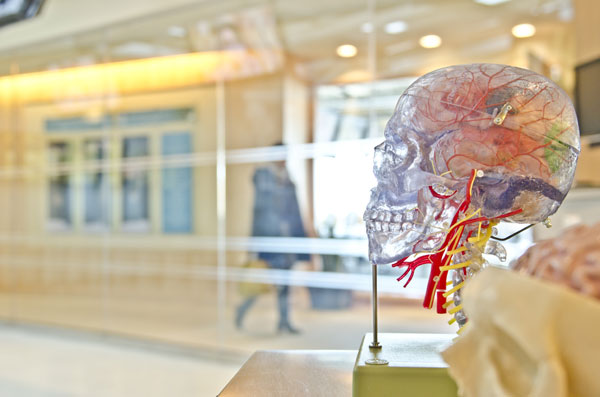The world’s first biological computer powered by human brain cells comes out

[Human Brain. Photo Credit to Pxhere]
CL1, the world's first commercial biological computer, was revealed by Cortical Labs on March 2, 2025.
The CL1 biological computer features synthetic biological intelligence that has 800,000 human brain cells living and growing in a nutrient solution on a silicon chip.
This breakthrough introduces a new form of intelligence, biological intelligence and synthetic biological intelligence, that differs fundamentally from traditional AI.
Synthetic Biological Intelligence, SBI, is an emerging field that combines biological and digital systems to create intelligent behaviour.
Biological intelligence refers to the cognitive abilities found in living organisms, encompassing a wide range of phenomena from the cellular level to complex behaviors like learning and problem-solving.
Unlike traditional artificial intelligence, which relies on algorithms and artificial neural networks, biological AI utilizes actual neurons to perform tasks.
These real neurons in the computer can learn intuitively with minimal training and a fraction of the energy, making the system self-programming.
The Biological Intelligence Operating System (biOS), which is a mixture of hard silicon and soft tissue, has integrated neurons.
However, biological computers have a much shorter useful life than chip-based computers since they are formed with living organisms.
The CL1 computer is designed to keep neurons alive for up to six months with its internal life support system.
As the CL1 biological computer contains human brain cells, it requires food, water, and nutrients, all of which are supplied onboard via a life-support system that keeps them at optimum temperature.
Cortical Labs stated, "SBI is inherently more natural than AI, as it utilizes the same biological material – neurons – that underpin intelligence in living organisms.”
The introduction of CL1 has drawn attention worldwide for how it works and differs from traditional computing systems.
Although chips in computers play a key role like the brain of the human body, the CL1 makes it possible for computers to learn much faster like humans through inference, which is a unique ability of the human brain that traditional artificial intelligence chips cannot replicate.
This new biological computer represents the evolution of computer systems at the intersection of living creatures, brain cells, and computer systems.
The CL1 costs $35,000, and Cortical Labs announces that the first CL1 computers will be available for shipment to customers in June.
This development demonstrates a major milestone in computing, as researchers seek to understand how well brain cells work in a computer compared to their function in a human brain.
Furthermore, the CL1 enables medical and research labs to test how real neurons process information, thus offering an ethically superior alternative to animal testing.
Nevertheless, there has been some reaction of concern regarding the use of real human brain cells as computing components.
Some scientists have raised ethical concerns around the development of synthetic biological intelligence, particularly using living brain cells in computing.
The Cortical Labs team noted in the launch statement, “Regulatory bodies may include health agencies, bioethics committees, and governmental organisations overseeing biotechnology or medical devices. Compliance with these regulations is essential to ensure responsible and ethical use of biological computing technologies."
As this technology and product open new possibilities for biological intelligence and biological computers, it can be evaluated as a successful first step.
The CL1 will be the standard to develop the biological intelligence field through continued research and by identifying potential advantages.

- Bomi Han / Grade 11 Session 3
- Thornhill Secondary School

![THE HERALD STUDENT REPORTERS [US]](/assets/images/logo_student_us.png)
![THE HERALD STUDENT REPORTERS [Canada]](/assets/images/logo_student_ca.png)
